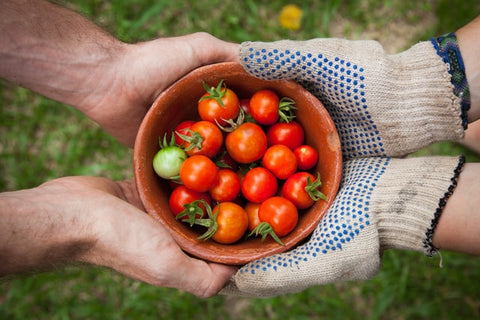What nutrients you should be concerned about if you're vegan
Vegan and vegetarian diets have both boomed in popularity over the years as research shows that eating more plant-based can benefit our body in many ways. Eating more plants can help to reduce risk of certain diseases like cancer, diabetes, or heart disease. Eating plant-based can also help to manage weight and make our gut feel better. While eating plant-based is overall a great option for those who are interested or can fit this dietary preference into their everyday routine, it’s important to understand that some nutrients may be missing or limited in these diets. In order to not be deficient in any nutrients, which can impact our overall health and quality of life,) educate yourself on key nutrients that are commonly lacking in vegetarian and vegan diets.
We’ll start by discussing some below.
Vitamin B12
Vitamin B12 is a crucial nutrient that is found in animal products like meat and dairy. B12 helps maintain normal brain function and develop red blood cells. Vegans are at particularly high risk of low vitamin B12 levels since they do not consume animal-derived products such as eggs or dairy. Therefore, vegans may benefit from a vitamin B12 supplement if advised by their doctor. Signs of vitamin B12 deficiency include weakness, fatigue, or impaired brain function. Vitamin B12 is in some non-animal products that Pure Plates carries such as soy products, breakfast cereals, and meat substitutes.

Vitamin D
Vitamin D is most likely a nutrient that you’ve heard about frequently. We think of vitamin D through exposure to sunlight, however, vitamin D is also obtained through food! (We also recommend getting it through real food rather than exposing yourself to excessive sunlight, this can cause skin cancer!). Vitamin D is important because it promotes bone health, reduces inflammation, and decreases risk of infection. Vitamin D is found in dairy products or egg. Inadequate vitamin D stores is shown by altered mental status or reduced strength. Similar to vitamin B12, vegetarians or vegans may be advised to take a vitamin D supplement, however, you should always check with your physician before starting a new medication. Pure Plates offers plant-based vitamin D sources through their fortified foods.
Heme Iron
Heme iron is the type of iron that is found in meat. Non-heme iron is found in plant foods. Heme iron is absorbed easily and helps improve absorption of the non-heme iron from your plant-based foods. Non-heme iron is poorly absorbed. Heme iron transports oxygen throughout the body. A lack of adequate iron can result in anemia. This is shown by fatigue, weakness, pale skin, or brittle nails. Since heme iron is found in meat products AND it helps the absorption of non-heme iron, this makes iron consumption even more important for vegetarians and vegans. Non-heme iron sources include fortified breakfast cereals, dark chocolate, lentils, spinach, potato, and beans. Pure Plates Black Bean Falafel, for example, is packed with non-heme iron. Another important interaction between nutrients for vegans and vegetarians is phytic acid and non-heme iron. Phytic acid, also known as phytate, is found in plant seeds and nuts. It disrupts the absorption of iron. Therefore, we want to make sure that we’re limiting seed consumption surrounding iron-containing foods.
Taurine
Taurine is another nutrient important for vegans and vegetarians. Taurine has a role in muscle function and acts as an antioxidant by protecting our body. It is only found in animal sources like fish and meat. Vegans have been shown to have less levels of taurine. Low levels of taurine is anxiety, weight gain, or high blood pressure. Synthetic forms (supplement) of taurine can be found but should be discussed with your provider before use.
For any pescatarians out there, Pure Plates has plenty of seafood options that will provide you with the nutrients that you need, such as taurine, iron, and vitamin D. We’re loving these Southwest Fish Tacos right now.

The bottom line
The purpose of discussing these potential nutrients of concern isn’t to scare you away from being a vegetarian or vegan, it’s to educate you! Well planned out vegetarian and vegan diets are very healthy. As we stated, those who eat more plants have lower risk of disease and are usually a healthier weight. Unfortunately, it’s difficult to get certain nutrients from eating only plants which therefore makes it important to understand where and how to get those nutrients from so you can live your healthiest life.
No matter what diet you decide, Pure Plates offers a variety of options to meet all dietary needs. They provide vegan- and vegetarian-friendly foods to make healthy eating ridiculously simple for you.

